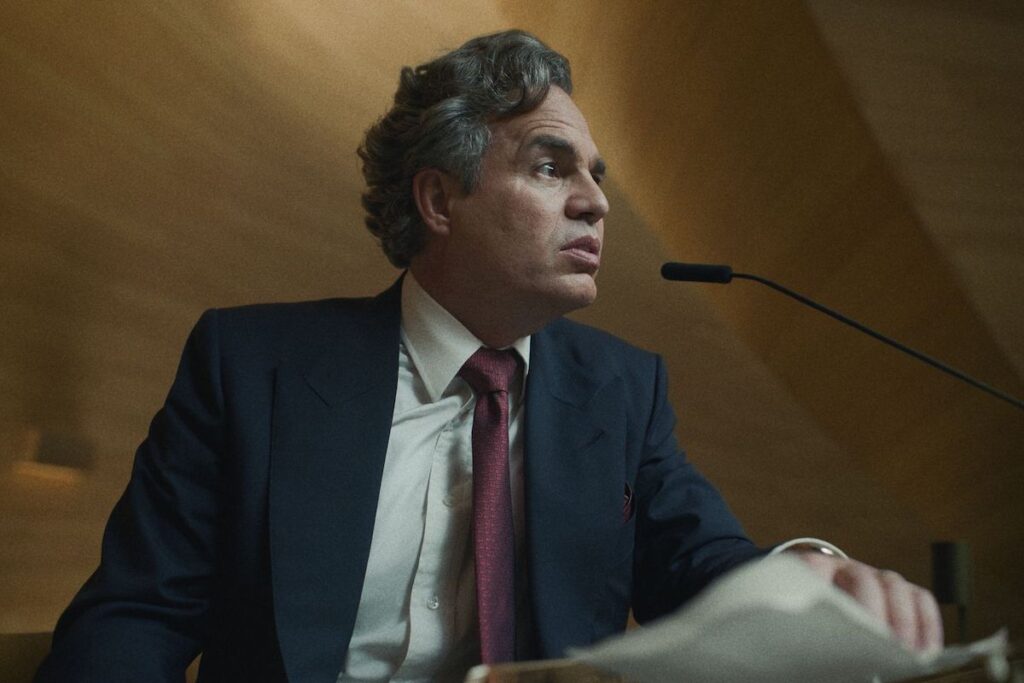Robert Pattinson Enlivens Sci-Fi Satire ‘Mickey 17’ but Can’t Transcend Its Messy Topicality
Issues of mortality, ethics, and duality are raised, among others, yet the real meat of the story for director Bong Joon-ho lies with the colony’s leader, Kenneth Marshall, a Trump-like figure.

Science fiction and political satire make for uneasy parents of the new cinematic progeny “Mickey 17,” opening across the country this Friday. Telling the tale of one Mickey Barnes, a doltish everyman who leaves Earth in the near-ish future for a space colony, the movie chronicles how his job as an “Expendable” gets him killed constantly, only to be “reprinted” time and time again with his memories intact, if not his personality.
Issues of mortality, ethics, and duality are raised, among others, yet the real meat of the story for director Bong Joon-ho lies with the colony’s leader, Kenneth Marshall, a Trump-like figure.
The movie opens on the occasion of Mickey’s 17th death, only we find out later that it’s more of a near-death experience. Yet first the film flashes back to when Mickey (Robert Pattinson) and his friend Timo (Steven Yeun) were almost murdered by a sadistic loan shark, with the two deciding afterward to join a space expedition in order to avoid loan repayment and death.
Yet die is all Mickey is able to do for the venture because he doesn’t possess any skills, with Timo receiving a pilot assignment. Mickey’s “extreme job” includes experiments in which scientists test the effects of radiation on him and where, once on Niflheim, the colony’s chosen planet, he is continually exposed to an endemic deadly virus.
While the concept of cloning is nothing new to sci-fi, “Mickey 17” manages in its elaborate prologue to explore some dark comedy from the character’s multiple deaths and “rebirths.” The introduction of Marshall (Mark Ruffalo), though, instantly signals that Mr. Bong has bigger fish to fricassee in his genre stew than just science and technology.
Marshall is presented as a politician/media personality who wishes to create a new society far away from the corruption and degradation on Earth, and his followers congregate donning pinkish red caps and jumpers. To say that Mr. Bong was being disingenuous when he recently stated that he wasn’t referencing any current political figure is to put it mildly, particularly considering Mr. Ruffalo’s Trumpian inflections and locutions such as “superior people.”

The complication to this Trump allusion is Marshall’s wife Ylfa, whom Toni Collette portrays as dissimilar to Melania Trump. Ylfa is instrumental in her husband’s decision-making and in tempering his unscripted moments, while also being a skilled saucier, and Ms. Collette brings her knack for subtle absurdity to the role. If only the same could be said of Mr. Ruffalo, who never finds the right tone of exaggeration for Marshall. Part of the fault lies with the dialogue, which sporadically mines a sardonic vein, but mostly the jokes are strained, self-satisfied, and at times dumb.
Mr. Bong based his screenplay on the novel “Mickey7” by Edward Ashton, veering from the book’s story by aligning it more with other futuristic films like “Starship Troopers” and his own “Snowpiercer” from 2013. When focusing on Mickey’s tragicomic existentialism and the drudgery of planetary colonization, it’s imaginatively envisioned and even humanistic.
Mr. Pattinson proves his comedic chops with the lead role, cock-eyed and clumsy as the character’s 17th iteration, though Mr. Bong’s reliance on voice-over narration reduces the characterization early on. Later, when Mickey 18 shows up after 17’s presumed death, the actor also has fun with this more aggressive version, essentially playing “good cop, bad cop” when the two find themselves together, with Mr. Pattinson acting with himself thanks to the magic of moviemaking.
Other characters are barely fleshed out, including Mickey’s girlfriend Nasha (Naomi Ackie), who’s one of the community’s security guards and yet we never discover why she chose to join the colonization — especially since she’s skeptical of Marshall — or what her assertive and strong character sees in the meek Mickey 17. Mr. Yeun’s Timo never gets beyond shallow and shifty, while Anamaria Vartolomei, who also features in this week’s other space movie “The Empire,” does what she can with the underwritten role of Kai, a bisexual who desires Mickey while also mourning the death of her girlfriend.
As one would expect from the auteur of the Oscar-winning “Parasite,” Mr. Bong consummately stages and assembles his central setpieces, including an attempted assassination. A couple of times, though, they devolve into chaotic clutter due to their speed and elaborate detail, such as during a dinner scene involving Mickey, Kai, Marshall, and Ylfa. This frenzy also mars the climatic sequence set on Niflheim’s frozen tundra, where thousands of native “Creepers,” which look like furry pill bugs, have amassed, with the action a blurry, confusing mess.
Topics like capitalism, drug abuse, organized resistance to tyranny, and the difference between aliens and natives emerge at times, only to be treated either didactically, glancingly, or humorlessly. One subject that does come in for consistent, mocking examination is science and medicine, with the movie giving us an “evil scientist,” uncaring doctors, and sycophantic experts.
Between this theme, Mr. Ruffalo’s depiction, and the colony’s flippancy toward death, it’s difficult to discern what Mr. Bong means to say, except to warn against hubris and history repeating itself, like a sequel. Unlike with “Parasite,” though, which HBO is developing into a spin-off series, the ultimately disappointing “Mickey 17” probably won’t inspire a new version of itself in the near future.
_______________
Correction: Bong is the surname of the director of “Mickey 17.” An earlier version misstated the name.

